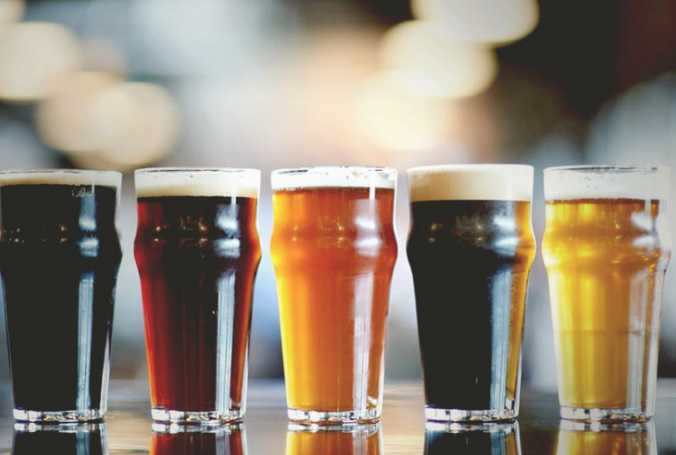Want a restaurant’s margarita on a Sunday? That’s banned in Hillsdale County.
Little-known Sunday sales laws called “blue laws” prohibit bars and restaurants in Hillsdale County from serving liquor on Sundays.

Hillsdale County residents voted in the 1980 general election to prohibit Sunday liquor sales. Almost 40 years later, Hillsdale is the only Michigan city that hasn’t overturned this restriction.
Hillsdale County Prosecuting Attorney Neal Brady said the laws have religious origins.
“I would guess the laws are probably a compromise dating back to Prohibition,” Brady said. “It’s obviously a moral issue, to try to preserve the Sabbath so that people are less inclined to be intoxicated all day, and to go to church instead.”
But today, the law disappoints those who want a margarita on Sunday and frustrates local business owners.
El’ Cerrito Manager Louis Vega said about one out of every two customers ask for hard alcohol on Sundays.
“Almost 50 percent of people who come in on Sunday say, ‘I want a margarita’ or ‘It’s been a long week, I want a margarita,’” he said. “Some people get so excited, but I have to let them down.”
Vega said he hadn’t looked into the requirements for changing the law, but Kevin Conant, co-owner of Here’s To You Pub and Grub, said he had.
“We tried two elections ago to get 1,400 signatures from registered voters to get the issue on the ballot, but we fell about 600 signatures short,” Conant said. “It’s just hard to find registered voters who actually care. Liquor sales represent about 20 percent of our [total] sales, so 20 percent of every Sunday is a pretty big number.”
Michigan Gov. Jennifer Granholm in 2010 signed Act 213, which changed a state law barring Sunday hard alcohol sales for “both retail establishments and in an establishment deriving more than half of its gross receipts from the sale of food and other goods.” This allowed both kinds of establishment to sell hard alcohol on Sundays starting at 7 a.m. if the business purchased a “Sunday Sales” permit, and if the local government allowed it.
The Michigan Liquor Control Commission distinguishes between two types of Sunday sales permits for on-premise restaurants: the “A.M.” permit allows the sale of liquor, beer, and wine on Sunday mornings from 7 a.m. until noon, while the “P.M.” permit allows liquor sales from noon on Sunday to 2:30 a.m. on Monday. Beer and wine can be sold after noon without a permit. But the state law also allows local governments to restrict Sunday liquor sales.
In the 1980 general presidential election, Hillsdale County voted to prohibit businesses from serving liquor on Sundays, according to a document provided by Hillsdale County Clerk Marney Kast.
The document states Hillsdale County residents voted not to permit the sale of spirits for consumption at establishments “in which the gross receipts derived from the sale of food or other goods and other services sales exceed 50 percent of the total gross receipts.”
According to a November 2015 list published by the MLCC, Hillsdale is the only county to prohibit restaurants and bars from serving liquor all day on Sundays, though three villages in Michigan have the same restrictions, and 16 cities, townships, and villages prohibit sales of packaged liquor on Sundays. Other local governments only prohibit Sunday morning liquor sales.
Hillsdale Market House also does not need a Sunday permit to sell packaged liquor on Sundays.
Michigan is one of 18 states that monopolize the sale of spirits — meaning beer, wine, and liquor.
Retail stores must comply with the Michigan Licensing and Regulatory Affairs minimum price list, which sets the minimum selling price for alcohol and product selection, that can change up to four times a year. Also, liquor licenses are costly to acquire. A business must do the following to apply: submit up to 11 forms, pay a $70 nonrefundable inspection fee and an annual $150 license fee, submit proof of property ownership and purchase, and pay an additional fee if requesting multiples permits or licenses.
Vega said the complex regulations forced El’ Cerrito to buy two liquor licenses, one for each side of the restaurant.
“They considered this side as another restaurant, so they made us get another license, because we were gonna have more hard liquor and beer,” Vega said.
Confusing clauses and complex restrictions appear to plague alcohol sales laws in Hillsdale. The police department had to look up the Sunday sales laws when asked about them, and other county officials were uncertain of the restrictions since the MLCC enforces them.

